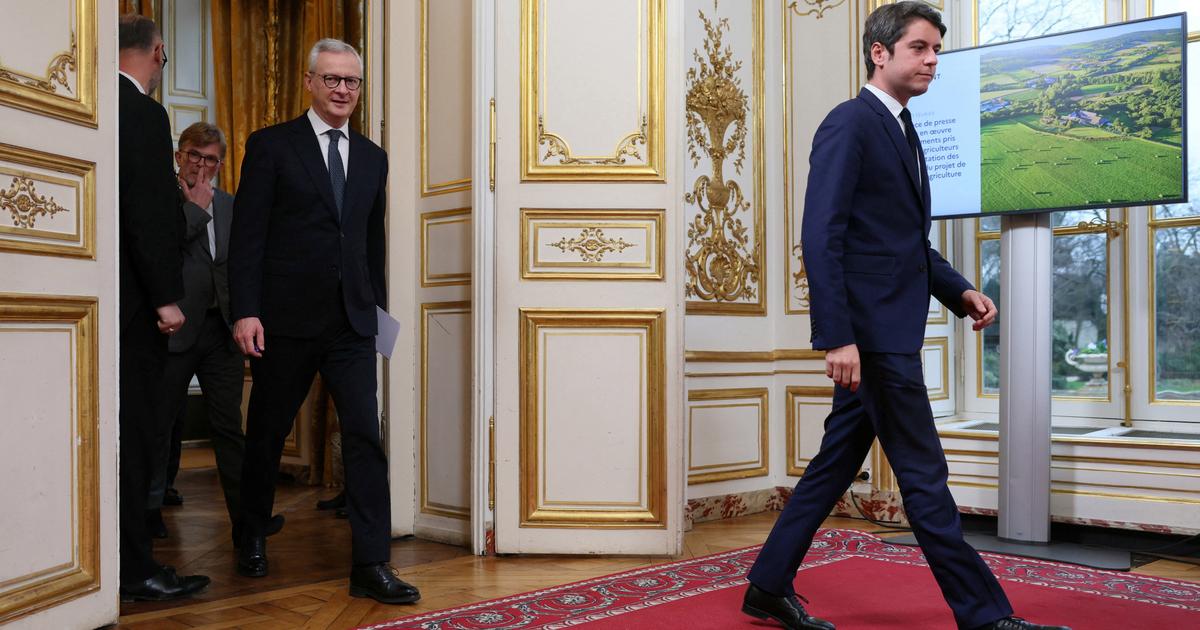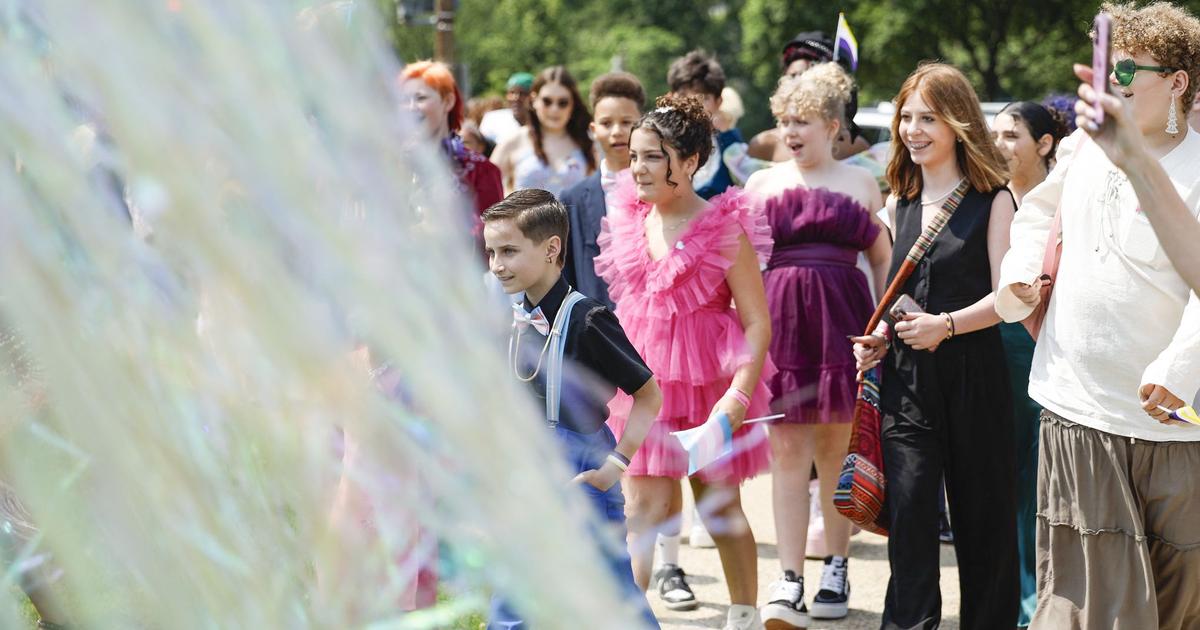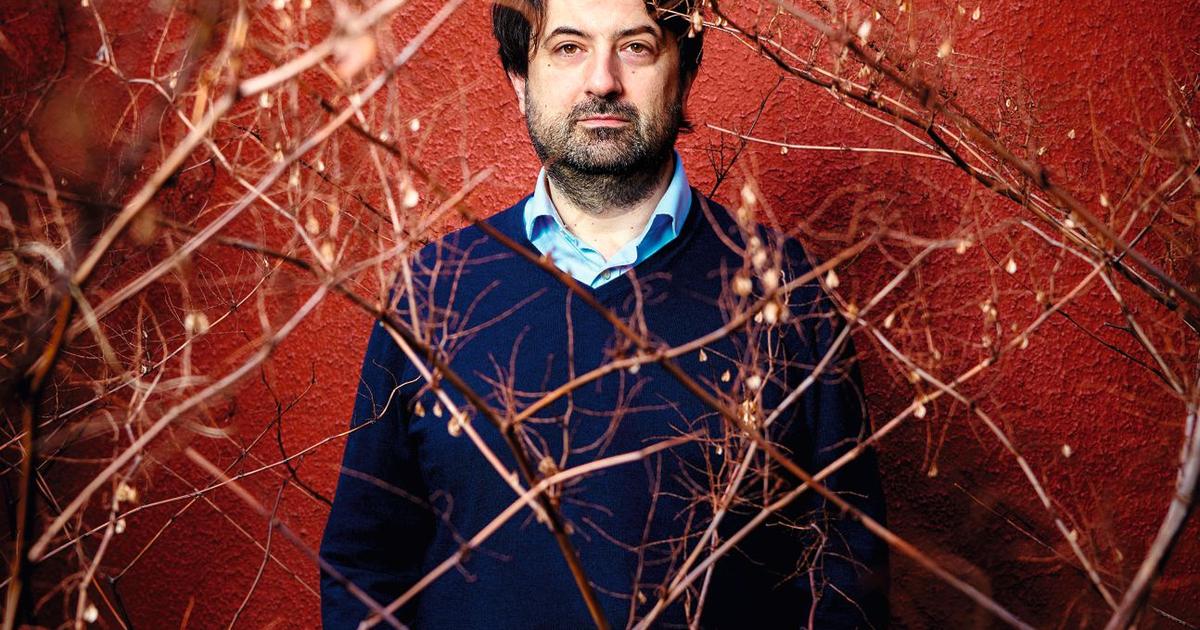Almost all of us learn the hard way, after suffering losses or living through some general or personal catastrophe.
Something like this was the strong waves in which the covid placed us all, although in the end we learned little.
But there are also free spirits, daring and brave beings who dare to anticipate catastrophes, thinking of a future world precisely to save us all.
Bruno Latour (1947-2022) was one of them.
The erudite French thinker who left us last October made an effort to anticipate the challenges and problems of the climate, posing his acute intelligence in the folds and edges of what is, perhaps, the challenge of our time and also of the future time.
Fiercely, without looking away, he understood that one of the problems with ecology is that it always bores or preaches.
"Imbued with moralism, it does not mobilize", he sentenced,
More information
Bruno Latour: "The feeling of losing the world, now, is collective"
Latour, who was the scientific director of the Institute of Political Studies in Paris, one of the most listened to, translated and read philosophers in the world, the original inventor of concepts and founder of schools where all disciplines joined hands, addressed the climate crisis looking for its possibilities of transformation, its potential capacity to open plausible futures for humanity, free from any tyranny of fear.
Faced with the "collapsologists", he was able to glimpse that the idea of apocalypse actually implied an exciting beginning: could there be anything more exciting than living in a time in which it is necessary to rethink everything in order to continue existing?
His audacity was accompanied by a fierce lucidity, for he recognized the dangers of the transition to a carbon-free society,
their new and inevitable forms of conflict.
From his point of view, the covid battles will be just a game compared to everything that is to come, when real and lasting changes in our lifestyles are really required of us.
“In Paris, you can't even stop cafes from heating up the surrounding air without bistro owners and smokers revolting!” he said in amazement.
The new ecological class will have to give the battle of ideas, he said, emulating the
Communist Manifesto
in its provocative
Mémo sur la nouvelle clase écologique
(Memorandum on the new ecological class; La Découverte, 2022; no Spanish edition).
The difference between billionaires à la Elon Musk, who intend to get out of this situation by fleeing to Mars, and those who really get down to business, working for a new climate culture, lies in the capacity for mobilization that Latour always found in the greatest of his passions: philosophy.
He loved her so much that he approached her from all possible forms of knowledge, making her dialogue with sociology, anthropology, religion, political theory, environmentalism, technology, visual arts, theater... Latour understood that the transformation What awaits us is of such magnitude that we can only address it “by working collectively in completely different disciplines and always looking at the public, something absolutely essential”.
When asked why he thought philosophy was so beautiful,
He said: “I could only answer that question by crying”, and added: “Philosophy is that completely amazing form that is interested in the whole and never reaches it, because the goal is not to reach it, but to love it.
Love is the word of philosophy.
For Latour, the philosopher worked to "restore the ability to act."
Bruno Latour, in 1985.Louis MONIER (Gamma-Rapho via Getty Images)
Only someone like that, a total, magnetic and daring thinker, could anticipate that the most important challenge of current political thought was to be found entirely in the question of ecology, as he wrote back in 1999 in
Politics of Nature.
How to bring science to democracy
(RBA).
Faced with what he already understood as a civilizing crisis, Latour proposed ecology as our great opportunity to “recivilize ourselves”.
His generation, that of May 68, wanted to eat the world moving forward without caring about the consequences of his actions.
That was, for Latour, the "modern" aptitude he described in
We've Never Been Modern.
(Debate), when society produces values and truths based on an advance that can only be understood from productivity, from what has destroyed the habitability conditions of the planet.
What he called “the simple structures of modernity”, such as the market or the State, the categories that allow us to simulate a framework of certainty in our way of looking at the world, actually functioned as a straitjacket that prevented us from landing on the ground. once in the climatic regime.
In addition to ceasing to be modern, it was necessary to choose the words well to avoid their traps of meaning.
“Growing up is a magnificent word.
It is the meaning of life itself! ”, He said.
That is why he proposed to speak of "prosperity" and not of "decrease", a word impossible to link with any notion or experience of progress in our quality of life.
Today we continue to move forward ignoring the consequences of what we do.
The climate generation, that of Greta Thunberg, has replaced modern recklessness with fear and anger.
They tell us that with them there will be no replacement, that there is no point in bringing children to a world on the verge of self-destruction.
Can there be a major civilizational crisis?
"It would take five planets to continue living like us," Latour said, but to realize this it is necessary to land, truly land in the climatic era.
The metaphor of space and displacement helped him to explain in
Where am I?
(Taurus), published just after the pandemic, the need for a new existential attitude, an unprecedented way of being in the world.
Because it was in confinement when we experienced that change of place, that moment in which the question of "who am I?", typical of the sciences of the 20th century, was juxtaposed with "where am I?", the question of our weather.
“What a relief to finally land, even if it's a big crash!
Because at least we are finally here, at home, trying to understand what is happening," Latour told us.
The confinement represented the opportunity not to return to the same place, to reopen questions and finally land in a climatic regime thought from the legal, political, philosophical, economic..., even from the affective.
“Obviously it's difficult and annoying… but what a relief!” he stated,
But our change of location also implies stopping thinking of the Earth as an infinite and open place and conceiving it as a limited and confined one, physically and politically feeling our difficulty in breathing.
The crisis of Black Lives Matter, that of the
yellow vests
—for those who tried to recover the grievance notebooks of the French Revolution through workshops that would help them articulate their complaints— are connected for Latour with the climate crisis from that difficulty breathing made explicit in the drowning murder of George Floyd.
Because that is when we understand one of the most powerful metaphors in his work, thought with extreme philosophical and scientific precision (“I cannot think without an empirical foundation”, he said).
The metaphor is Gaia, the Greek goddess mother of all deities that gives its title to another essential work:
Face à Gaïa
(In front of Gaia; La Découverte, 2015; without Spanish edition).
Living on Gaia is landing in what scientists call “the critical zone”, that very thin layer of the planet in which we inhabit confined and which we have modified over millions of years.
That 2015 book was accompanied by artistic experiences (
Critical Zones,
at the Taipei Biennale, and
You and I do not live on the same planet
, at the Pompidou Center in Paris) that he himself curated with the aim of “producing an experience of [his] thought”, bringing his work closer to contemporary art to reflect the cosmology in which we find ourselves today.
For Latour, philosophical problems also had to be addressed by means other than writing.
Latour placed the climate at the center of everything, redefining it as the key to reading all current political positions.
Near the end of his life, he explained in a fascinating conference organized at the Sorbonne by the magazine
Le Grand Continent
how the war in Ukraine was also a climate war.
"The question of delimitation of the borders has become (...) something that is new and unexpected: trying to get rid of Russian gas and oil as soon as possible."
Her sparkling Quixotic figure, slender but already fragile, magically overcame her advanced illness, muting the audience with her convinced Europeanism: “The place where we are and the people we form are never an abstraction, they are always the result of a clash.” .
The war in Ukraine thus appeared as an opportunity to conceive and think about Europe as a nation, as a soil and not only as a Union, from a new sovereignty linked to the "project to repair habitable conditions that have been devastated".
And it is still paradoxical that Latour has left us precisely this year 2022,
Subscribe here
to the weekly newsletter of Ideas.
Subscribe to continue reading
Read without limits
Keep reading
I'm already a subscriber







/cloudfront-eu-central-1.images.arcpublishing.com/prisa/JEEPQTR4AVGKDDJ24B4CKAATNY.jpg)







